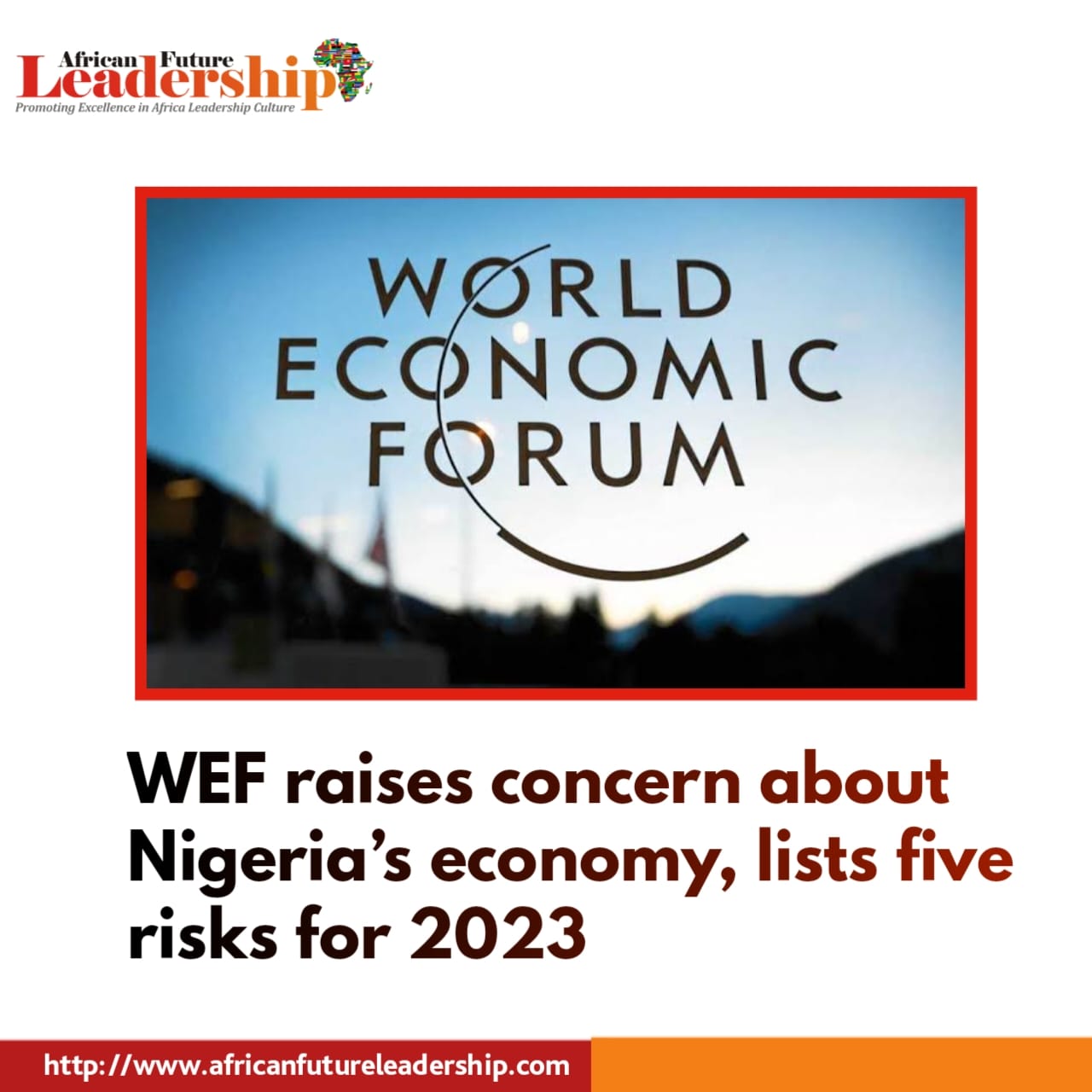The World Economic Forum (WEF) has raised concerns about the health of the Nigerian economy and the tough job ahead for the country’s next president.
In a new report titled: “The Global Risks Report 2023,” published on its website on Wednesday, WEF said its submission on Nigeria was based on responses from 1,200 private-sector risk managers, public policy-makers, academics, and industry leaders across the world.
The organization listed terror attacks, debt crises, cost of living, severe commodity supply crises, rapid or sustained inflation, and unemployment or livelihood crises as the most immediate risks facing the country’s economy.
“2023 is set to be marked by increased risks related to food, energy, raw materials, and cyber security, causing further disruption to global supply chains and impacting investment decisions,” Carolina Klint, risk management leader, Continental Europe, Marsh, said in the report.
She advised companies to focus not just on navigating near-term concerns but also on developing strategies that would position them well for longer-term risks and structural change.
WEF said globally, the coming years would present tough trade-offs for governments facing competing concerns for society, the environment, and security.
READ MORE: Bahrain welcomes launch of final political phase in Sudan
It used data from the Global Risks Perception Survey 2022-2023 to highlight the risks the world was likely to face over the coming 10 years.
The WEF identified the cost-of-living crisis as the most severe threat facing developed and developing countries over the next two years.
“Next is natural disasters and extreme weather events while geoeconomic confrontation also features in the top three most severe risks in our most immediate future,” the report said.
The Geneva-based organization stressed that the long-term risk of failure to tackle climate change had emerged as the biggest set of risks.
“From failure to mitigate climate change to biodiversity loss and ecosystem collapse, findings showed the top four most severe risks over the next 10 years are all environmental.
“Already, short-term geo-economic risks are putting net-zero commitments to the test and have exposed a gap between what is scientifically necessary and politically palatable,” it added.
WEF urged leaders to act collectively and decisively to balance short- and long-term views.
“The short-term risk landscape is dominated by energy, food, debt, and disasters,’ said Saadia Zahidi, Managing Director of WEF.




